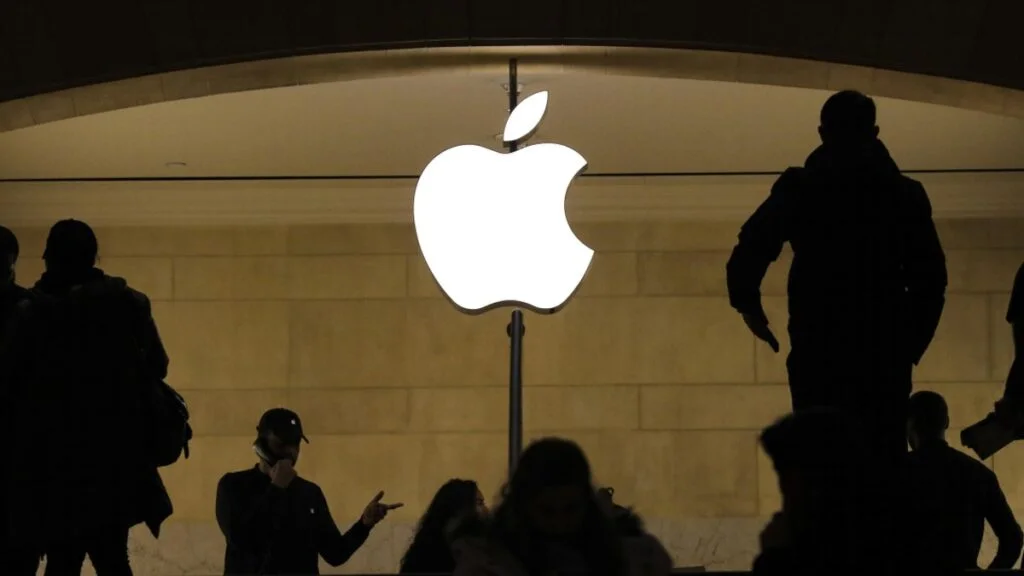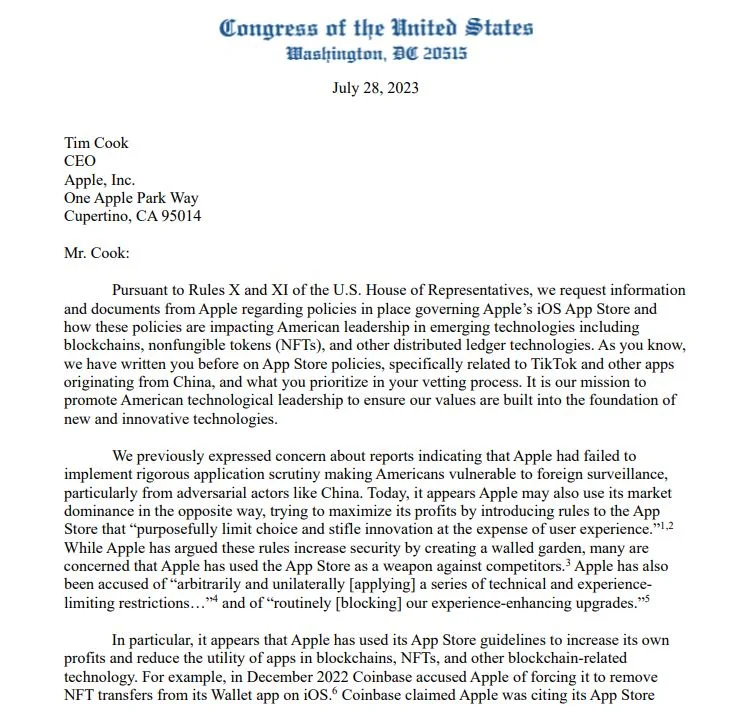Lawmakers are investigating whether Apple’s stringent guidelines might inadvertently stifle innovation and hinder the growth of cutting-edge technologies.

United States Representatives Gus Bilirakis and Jan Schakowsky penned a formal letter to Apple CEO Tim Cook about concerns related to the California-based company’s App Store, and the potential effect of its guidelines on emerging technologies like blockchain and NFTs.
The letter asks for information regarding the possibility that the policies of the App Store can unintentionally impede the development and expansion of cutting-edge technology.

The MPs noticed a pattern in how Apple handled its App Store policies, where the firm appeared to profit from and simultaneously restrict the functioning of cryptocurrency programs.
They emphasized that Apple accomplished this by requiring the sale of “lite” versions, which increased Apple’s earnings while reducing the applications’ total utility.
They explicitly cited the instance of Axie Infinity’s App Store experience as proof. The MPs’ concerns about the possible adverse effects of Apple’s policies on the country’s standing in developing technologies were expressed in the letter they sent.
While Apple has defended these restrictions as a way to increase security by using a “walled garden” strategy, the chairman and ranking member of the Innovation, Data, and Commerce Subcommittee noted that there is widespread worry that the company may be using the App Store as a tool to stifle competition.
They underlined how crucial it is for Congress to fully comprehend the App Store criteria and determine how these guidelines can stifle innovation. They also said
“Our subcommittee remains committed to promoting full transparency and ensuring that Big Tech is held accountable for monopolistic behavior. ”
According to the politicians, they want to level the playing field in the sector so innovation may flourish in the United States. The officials earlier wrote a similar letter to Apple regarding the App Store’s rules surrounding TikTok and other Chinese-made apps.
